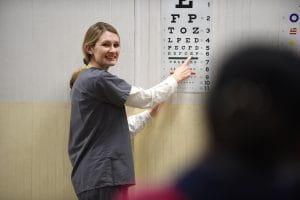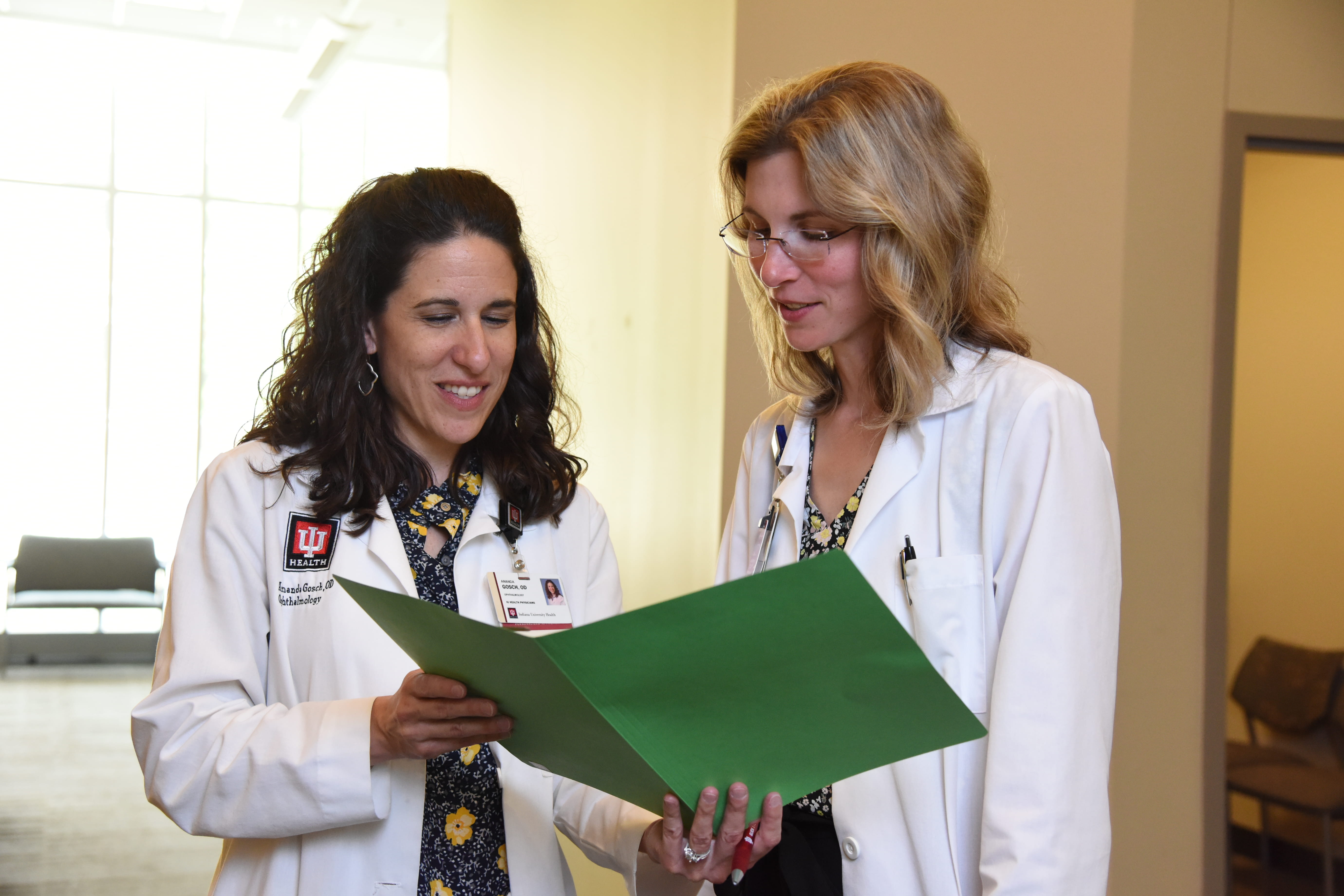The Ophthalmology Residency program at IU School of Medicine was founded in 1908 and is a three-year ACGME-accredited program that provides excellent educational experience across clinical and surgical subspecialties of ophthalmology. Residents enjoy increasing levels of responsibility within the field as they progress through the program. The fully integrated ophthalmology residency program offers six positions annually and supports residents through all four years of training.
Ophthalmology residents are responsible for the examination and evaluation of clinic patients in a diverse range of settings, as well as the pre- and post-operative management of surgical patients. They also assist with procedures, studies and interpretations, including computerized visual fields, diagnostic ultrasonography, fluorescein angiography, fundus and slit-lamp photography, and tonography. All residents become well-trained in all aspects of ophthalmic surgeries, including laser surgery.

